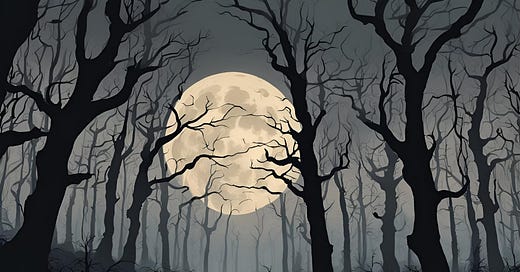Friday the 13th. The very phrase sends a shiver down the spine of many, conjuring images of black cats, broken mirrors, and general misfortune. This date, recurring at least once and up to three times a year, has been associated with bad luck for centuries. But where did this superstition originate, and why does it continue to grip our collective consciousness?
The Roots of Fear: A Tangled Web of Origins
The fear of Friday the 13th, known as paraskevidekatriaphobia or frigga triskaidekaphobia, is a complex phenomenon with roots in various historical, mythological, and religious beliefs. Friday itself has long held a negative connotation, particularly in Christian tradition. Good Friday, the day of Jesus Christ's crucifixion, cemented Friday's association with suffering and death.
The number 13 also carries a heavy burden of superstition. In Christian lore, Judas Iscariot, the 13th apostle at the Last Supper, betrayed Jesus. This association with betrayal and death has made 13 a symbol of ill omen. The superstition is so pervasive that many buildings omit a 13th floor, and some airlines skip a 13th row.
Norse mythology offers another explanation. Loki, the trickster god, is often portrayed as the 13th guest at a feast, bringing chaos and misfortune. His role in the death of the beloved god Baldur further solidified 13's association with bad luck.
From Ancient Codes to Modern Fears
While some claim the Babylonian Code of Hammurabi omitted a 13th law, the original code wasn't numbered, making this assertion likely a misunderstanding. The disruption of medieval monastic calendars by years with 13 full moons, rather than the usual 12, also contributed to the number's negative reputation.
In the 1880s, the Thirteen Club was formed to defy the superstition. Members, including five U.S. presidents, met on the 13th of every month for a 13-person dinner. While their efforts were commendable, colorful (and likely fabricated) legends arose, claiming the club members met unfortunate ends.
The Death card in Tarot, often associated with the number 13, depicts a skeletal figure on a pale horse, symbolizing transformation and the end of cycles, not necessarily physical death. In J.R.R. Tolkien's The Hobbit, Thorin's company of dwarves numbers 13, with Bilbo Baggins added as the 14th member, hinting at the potential for disruption and change.
Friday the 13th: A Confluence of Misfortune
The combination of Friday and the number 13 amplifies the superstition. The first documented mention of this specific day as unlucky appears in a biography of Italian composer Gioachino Rossini, who died on a Friday the 13th. Some believe Friday was traditionally "hangman's day," though evidence for this is scarce. However, there were 13 steps up to the scaffold, 13 turns in a hangman's noose, and 13 pence and a halfpenny paid to the hangman.
Historical Happenings: Fact or Folklore?
Several historical events have been linked to Friday the 13th, further fueling the superstition. The arrest of the Knights Templar on Friday, October 13, 1307, is a prime example. King Philip IV of France, seeking to seize their wealth, accused them of heresy and other crimes, leading to their persecution and eventual dissolution.
Other events linked to the date include a mass execution by the Aztecs on Friday, August 13, 1539; the devastating Black Friday bushfires in Australia on Friday, January 13, 1939; and the German air raid on Buckingham Palace on Friday, September 13, 1940.
More recent events, like the Apollo 13 mission's oxygen tank explosion on April 13, 1970, and the Costa Concordia cruise ship disaster on January 13, 2012, have also contributed to the superstition's staying power. The tragic deaths of Tupac Shakur on Friday, September 13, 1996, and Kitty Genovese on March 13, 1964, further underscore the date's association with misfortune.
Even local legends, like the haunting of the Stocksbridge Bypass, opened on Friday the 13th, 1988, add to the tapestry of Friday the 13th lore. Security guards' encounters with phantom children and a cloaked figure with a featureless face near the bypass construction site continue to fuel local legends.
The Power of Superstition: A Cultural Phenomenon
Despite its ominous reputation, Friday the 13th serves as a reminder of the power of superstition and our human tendency to find patterns and meaning in the world. While the exact origins of the superstition may remain shrouded in mystery, its enduring presence in our culture highlights our fascination with the unknown.
Beyond the Fear: Cultural Variations and Modern Interpretations
While widely considered unlucky in Western cultures, some cultures view 13 as fortunate. In Italy and some Chinese cultures, the number is associated with good luck, particularly in relation to birthdays and celebrations.
The Friday the 13th horror film franchise, featuring the iconic Jason Voorhees, has undoubtedly cemented the date's reputation as a night of terror in popular culture. The franchise's success demonstrates the enduring appeal of the superstition and its ability to tap into our deepest fears.
Just a Day?
Ultimately, Friday the 13th is just a day. Whether you embrace the superstition or dismiss it as mere folklore, it's undeniable that this date holds a unique place in our collective imagination. It serves as a reminder of the power of belief, the allure of the unknown, and the enduring human fascination with the strange and mysterious.
Check out our paid subscriber podcast episode on Friday the 13th here



